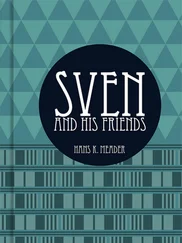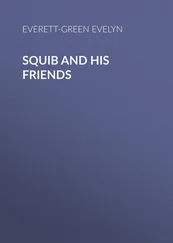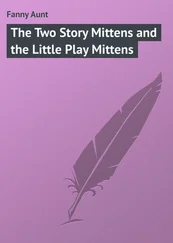Marshall Saunders - Golden Dicky, The Story of a Canary and His Friends
Здесь есть возможность читать онлайн «Marshall Saunders - Golden Dicky, The Story of a Canary and His Friends» — ознакомительный отрывок электронной книги совершенно бесплатно, а после прочтения отрывка купить полную версию. В некоторых случаях можно слушать аудио, скачать через торрент в формате fb2 и присутствует краткое содержание. Жанр: foreign_children, foreign_antique, foreign_prose, на английском языке. Описание произведения, (предисловие) а так же отзывы посетителей доступны на портале библиотеки ЛибКат.
- Название:Golden Dicky, The Story of a Canary and His Friends
- Автор:
- Жанр:
- Год:неизвестен
- ISBN:нет данных
- Рейтинг книги:5 / 5. Голосов: 1
-
Избранное:Добавить в избранное
- Отзывы:
-
Ваша оценка:
- 100
- 1
- 2
- 3
- 4
- 5
Golden Dicky, The Story of a Canary and His Friends: краткое содержание, описание и аннотация
Предлагаем к чтению аннотацию, описание, краткое содержание или предисловие (зависит от того, что написал сам автор книги «Golden Dicky, The Story of a Canary and His Friends»). Если вы не нашли необходимую информацию о книге — напишите в комментариях, мы постараемся отыскать её.
Golden Dicky, The Story of a Canary and His Friends — читать онлайн ознакомительный отрывок
Ниже представлен текст книги, разбитый по страницам. Система сохранения места последней прочитанной страницы, позволяет с удобством читать онлайн бесплатно книгу «Golden Dicky, The Story of a Canary and His Friends», без необходимости каждый раз заново искать на чём Вы остановились. Поставьте закладку, и сможете в любой момент перейти на страницу, на которой закончили чтение.
Интервал:
Закладка:
“Her mate Spotty came along after a while and fell into a rage. He asked if any bird had seen her at this mischief, and I said I had.
“He asked why I hadn’t stopped her, and I said it was none of my business.
“He said it was, that all the birds in the room, even the parakeets and the love-birds who are pretty selfish, had made up their minds to stop this business of egg-breaking; then they all fell on me and picked out my tail feathers to remind me to interfere when I saw another bird doing anything wrong.”
“Do you feel badly about it, uncle?” I asked.
“My tail is pretty sore, but my mind is tranquil. I did wrong, but I have been punished for it, and my feathers will grow. Why worry about it? I am sorry for Spotty. He expected to have a nice lot of young ones in thirteen days, and now he will have to wait for weeks.”
“Why would Avis eat her eggs, when she has plenty of lime and crushed egg shell and all sorts of food here?” I asked.
“Habit, my birdie. She had the naughty trick and could not get over it. If I had only shrieked at her, it would have frightened her and kept her from murdering all her future nestlings, as Spotty says. But there is your cayenne pepper food coming. Go and eat some, so that your feathers will be reddish gold. It is a good throat tonic, too.”
Our Mary was just coming in with a saucer of mixed egg food, grated sweet bread, granulated sugar and cayenne pepper sprinkled on the top of it. She also had a deep dish of something purple.
“Blueberries, birds,” she said, as she put it down. “Nice canned blueberries, almost as fresh as if they had just come off the bushes.”
Nearly every bird in the room uttered a satisfied note, then they all flew to her feet where she set the dishes.
I was not hungry, and ate little. When she opened the door a few minutes later to go out, I flew to her and lighted on her arm.
My father was taking a nap, and I knew by the wicked look in Green-Top’s eye that he would begin bullying me as soon as she left the room.
“Take me out,” I chirped, “take me out,” for I knew that she often took good steady little birds out into her own part of the house.
She understood me. “But, Dicky-Dick,” she said, “you are so young. I fear you might fly away.”
“I’ll be good. I’ll be good,” I sang in my unsteady young voice, and, relenting, she put out a finger, urged me gently to her shoulder where she usually carried her birds, that being the safest foothold, and walked out into the hall.
My mother saw me going and called out a warning. “Be careful, Dicky-Dick. You will see strange sights. Don’t lose your head. Keep close to our Mary.”
“I’ll be careful, careful,” I called back, but my heart was going pit-a-pat when the bird-room door closed behind me, and I went out into the strange new world of the hall.
CHAPTER II
A TRIP DOWNSTAIRS
OH, what a different air the hall had—very quiet and peaceful, no twittering of birds and never-stopping flying and fluttering, and chattering and singing, and with the murmur of the fountain going on, even in our sleep! There was no gravel on this floor, just a soft-looking thing the color of grass, that I found out afterward was called a carpet.
Our Mary hopped cheerfully down the stairs. She was quite a young girl, and had had a fall when a baby, that had made her very lame. Her parents gave her the bird-room to amuse her, so my mother had told me, for she could not go much on the street.
On the floor below the attic were some wide cheerful rooms with sunny windows. These were all called bedrooms, and her parents and two little cousins slept in them. There was nobody in them on this morning of my first visit to the big world outside the bird-room, and we went down another long staircase. Here was a wider hall than the others, and several rooms as large as two or three bird-rooms put together.
Our Mary took me in between long curtains to a very beautiful place, with many things to sit on and a covering for the floor just as soft as our grass sods. She was quite out of breath, and dropping down on a little chair, put up a finger for me to step on it from her shoulder, and sat smiling at me.
“What big eyes, birdie!” she said. “What are you frightened of?”
“Of everything,” I peeped; “of this big world, and the huge things in it.”
She laughed heartily. “Oh, Dicky-Dick, our modest house overcomes you. I wish you could see some of the mansions up the street.”
“Oh, this is large enough for me, large enough, large enough,” I was just replying, when I got a terrible fright.
A big monster, ever so much higher than our Mary and dressed differently, was just coming into the room.
I gave a cry of alarm, and mounted, mounted in the air till I reached something with branching arms that came down from the ceiling. I found out afterward that light came from this brass thing. I sat on it, and looking down with my head thrust forward and my frightened feathers packed closely to my body, I called out, “Mary, Mary, I’m scary, scary!” which was a call I had learned from the older birds.
Mary was kissing the monster, and then she sat down close beside him and held on to one of his black arms.
“Dicky, Dicky,” she sang back to me, “this is my daddy, don’t be scary. Why, I thought he had been in the bird-room since you were hatched. Come down, honey.”
Of course if he was her father, he would not hurt me, so I flew back to her shoulder, but what a queer-looking, enormous father! I was glad my parent did not look like that.
He was very loving with her, though, and, stroking her hair, he said, “Don’t tire yourself too much with your birds, Mary.”
“They rest me, father,” she said, shaking her brown head at him, “and this new baby amuses me very much. He is so inquiring and clever and such a little victim, for his bigger brother beats the life out of him.”
“The canary world is like the human world,” said Mary’s father, “sleep, eat, fight, play, over and over again—will your young pet let me stroke him?”
“I think so,” she said, “now that he knows who you are.”
“Why, certainly, certainly,” I twittered. “Everybody’s kind but brother.”
The man laid a big finger, that seemed to me as heavy as a banana, on my golden head, and stroked me till I bent under the caress.
Fortunately some other person came in the room and he turned his head.
This was our Mary’s mother, Mrs. Martin. I knew her well, for she often came into the bird-room. She was a very large, cheerful lady, not very handsome, nor remarkable in any way, and yet different from most women, so the old birds said. I had heard them talking about her, and they said she is one that understands birds and beasts, and it is on account of her understanding that our Mary loves us. They said she is a very wonderful woman, and that there is power in her eye—power over human beings and animals, and more wisdom even than our Mary has, for she is old, and her daughter is young.
“The young can not know everything,” the old birds often sang; “let them listen to the old ones and be guided by them.”
When Mrs. Martin came in, her quick brown eyes swept over the room, taking in her daughter, her husband, and even little me perched on our Mary’s finger.
“Thank fortune, I’m not late for lunch,” she said, sinking into a chair, “and thank fortune, we have a guest. Excuse me for being late, birdie,” she said in a most natural way, and treating me with as much courtesy as if I had been as big as the picture of the eagle on our bird-room wall.
That’s what the birds said about her, that she believes even a canary has a position in the world, and has rights. She just hates to have any creature imposed on or ill-used.
Читать дальшеИнтервал:
Закладка:
Похожие книги на «Golden Dicky, The Story of a Canary and His Friends»
Представляем Вашему вниманию похожие книги на «Golden Dicky, The Story of a Canary and His Friends» списком для выбора. Мы отобрали схожую по названию и смыслу литературу в надежде предоставить читателям больше вариантов отыскать новые, интересные, ещё непрочитанные произведения.
Обсуждение, отзывы о книге «Golden Dicky, The Story of a Canary and His Friends» и просто собственные мнения читателей. Оставьте ваши комментарии, напишите, что Вы думаете о произведении, его смысле или главных героях. Укажите что конкретно понравилось, а что нет, и почему Вы так считаете.












